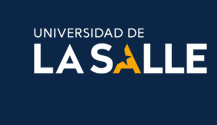Title
Psychosocial holistic perspective
Resumen
El artículo da cuenta de la investigación “revisión documental sobre el concepto psicosocial”, parte del Proyecto “Observatorio Iberoamericano sobre lo psicosocial ante las situaciones de Trauma y Discapacidad psicosocial” OIP, apoyado por la Dirección Nacional de Investigaciones de la Universidad Antonio Nariño, Facultad de Terapias Psicosociales, desde TEPSISO, grupo de investigación registrado en Colciencias. La revisión documental tiene en cuenta información producida en organizaciones nacionales e internacionales como UNICEF, Organización Mundial de la Salud (OMS), Organización Panamericana de la Salud (OPS), Ministerio de la Protección Social, Instituto Colombiano de Bienestar Familiar (ICBF) y las universidades Nacional, Antonio Nariño, los Andes, Luís Amigó y la Sabana. La información se organiza de acuerdo a categorías como capital humano, estrés, desastre, trauma, discapacidad psicosocial, rehabilitación, red de apoyo y observatorio. Los 211 Resúmenes Analíticos de Investigación (RAI) construidos, permiten concluir que el concepto psicosocial requiere precisión. Su comprensión se fundamenta en los derechos humanos y el derecho internacional humanitario. El concepto se operacionaliza desde tres modelos de atención: sociosanitario o médico; comunitario y un tercero asociado a catástrofes y prevención. Existe un paradigma que vincula interdependientemente lo psicológico y lo social ante las situaciones de estrés, desastre y trauma psicosocial, porque en ellos se afecta el individuo y la colectividad. La participación psicosocial pretende la transformación mediante acciones de autogestión en comunidad; el respeto de los derechos fundamentales y la práctica de los derechos humanos DH, son parte del modelo de atención psicosocial.
Palabras clave
observatorio, psicosocial, trauma, discapacidad, desastre
Abstract
This research is a documentary revision on the psychosocial concept, it is a part of the Project: “Latin American Observatory on the psychosocial on situations of Trauma and psychosocial Incapacity” supported by national direction of Investigation of the Universidad Antonio Nariño, Faculty of Psychosocial Therapies. Tepsiso, an investigation group registered in COLCIENCIAS. The aim of this work is the review of the literature of the concept psychosocial documentary, taking into consideration information produced by national and international organizations like UNICEF, OMS, OPS, MINPROTECCIÓN, ICBF and universities like Nacional, Antonio Nariño, Andes, Luís Amigó and Sabana. The information has been classified according to aspects such as human capital, stress, disarter, trauma, psychosocial incapacity, rehabilitation, network of support and observatory. The 211 Analytical Summaries of Investigation (RAIs) obtained after the documentary review they have allowed to conclude that the psychosocial concept requires precision, and its understanding is based on the Human Rights and the International Humanitarian Right. This concept is developed from three models of attention: sanitary or medical, communitarian collaborations, and third associated to catastrophes and prevention. A paradigm exists, that interdependently ties the psychological and the social in stress situations, disaster and psychosocial trauma because in this type of situation, it is affected the individual and the collectivity in different levels; the psychosocial participation intent the transformation by means of actions of self/management in community where the respect of the fundamental rights and practices it of Human rights DH are part of the model of psychosocial attention.
Keywords
Observatory, Psycho-social, Trauma, Discapacity
Fecha de recepción
27 de julio de 2007
Fecha de aceptación
18 de septiembre de 2007
Fecha de publicación
2007-10-01
Licencia Creative Commons

This work is licensed under a Creative Commons Attribution-Noncommercial-No Derivative Works 4.0 License.
Tipo de documento
Artículo de reflexión
Editorial
Universidad de La Salle. Ediciones Unisalle
Citación recomendada
Medina Montañez, María Victoria; Layne Bernal, Benilda; Galeano Heredia, María del Pilar; and Lozada Puerto, Carolina
(2007)
"Lo psicosocial desde una perspectiva holística,"
Tendencias y Retos:
No.
12
, Article 11.
Disponible en:


